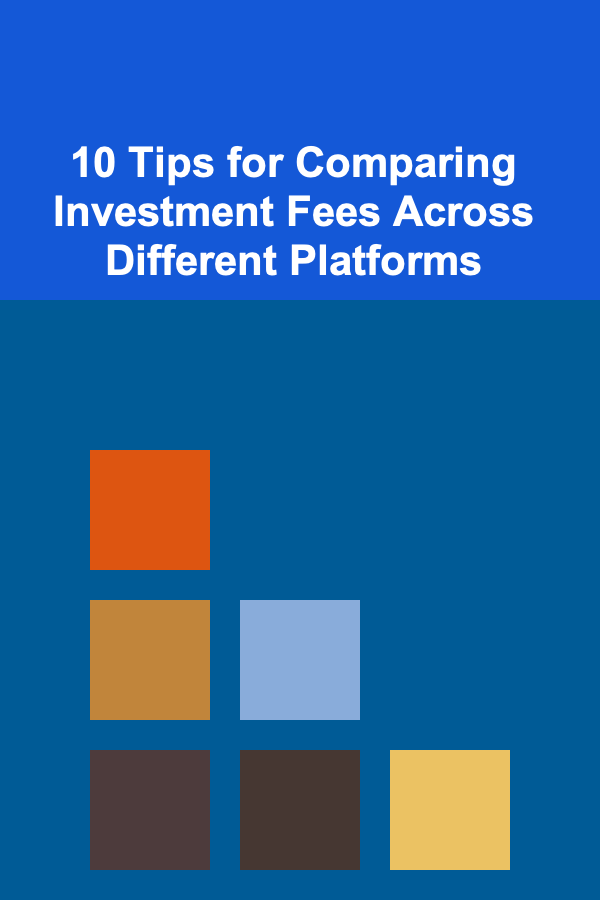
Renting vs. Buying Comparison: Financial Implications and Long-Term Benefits
ebook include PDF & Audio bundle (Micro Guide)
$12.99$11.99
Limited Time Offer! Order within the next:

When it comes to deciding whether to rent or buy a home, many people face a tough choice. This decision often depends on various factors, including personal financial status, lifestyle, long-term goals, and even the current state of the housing market. While both renting and buying come with their unique set of advantages, understanding the financial implications and long-term benefits of each option is crucial for making an informed choice. This comprehensive guide delves deep into the financial aspects of renting vs. buying and how each option could shape your future.
Renting a Home: Flexibility and Lower Upfront Costs
Lower Upfront Financial Commitment
Renting a home typically requires a smaller initial financial investment than buying. When you rent, your upfront costs are usually limited to a security deposit, first and last month's rent, and perhaps some minor moving costs. In contrast, buying a home typically requires a significant down payment, which can range from 3% to 20% of the home's purchase price, depending on the loan type. Additionally, buyers need to account for closing costs, inspection fees, and other initial expenses.
- Example: For a $300,000 home, a down payment of 20% would be $60,000. In comparison, the upfront costs of renting could be as little as $2,000 to $5,000 depending on the rental agreement.
Monthly Rent vs. Mortgage Payments
When renting, monthly payments tend to be more predictable and stable in the short term. Rent amounts are often fixed for the duration of a lease (typically one year), though some leases may include clauses for rent increases after that period. Renters do not have to worry about property taxes, maintenance costs, or homeowner's insurance. In contrast, mortgage payments may fluctuate depending on whether you have a fixed-rate or adjustable-rate mortgage, and you will also need to pay property taxes, homeowner's insurance, and maintenance costs. These additional expenses can significantly increase your overall monthly payments when compared to renting.
- Example: A renter might pay $1,500 per month for a rental property, while a homeowner with the same property might pay $1,200 for the mortgage but incur an additional $500 per month in taxes, insurance, and maintenance costs.
Maintenance and Repairs
One of the most appealing benefits of renting is that the landlord is typically responsible for maintenance and repairs. Renters are not financially liable for fixing broken appliances, leaky faucets, or landscaping issues. This offers peace of mind and can help renters avoid unexpected expenses.
On the other hand, homeowners are responsible for all maintenance and repairs, which can be costly over time. The average homeowner spends around 1% of the property's value annually on maintenance and repairs.
- Example: If you own a home worth $300,000, you may need to budget approximately $3,000 per year for repairs and maintenance.
Flexibility and Mobility
Renting provides flexibility, especially if you're uncertain about your long-term plans or if you foresee significant life changes (job relocation, expanding family, etc.). Renters can move out after their lease term ends with minimal hassle and without having to sell a property. Homeownership, however, locks you into a specific location. Selling a home can be time-consuming and expensive, and if the housing market is unfavorable, you may lose money on the sale.
- Example: If you need to relocate for a job, renting allows you to leave with little notice and without the burden of selling a property. Conversely, selling a home can take several months, and you might have to deal with market fluctuations or selling costs (agent fees, closing costs, etc.).
Buying a Home: Investment and Long-Term Stability
Building Equity and Wealth
One of the biggest advantages of buying a home is that your mortgage payments help you build equity over time. With each payment, a portion goes toward reducing the loan principal, which means you're building ownership in the property. As the property value increases, your equity in the home grows. This is particularly important if you plan to stay in the home for an extended period.
- Example: If you buy a home for $300,000 and its value appreciates by 3% per year, after five years, the home could be worth around $348,000. Meanwhile, your mortgage balance has been decreasing, increasing your overall net worth.
Tax Benefits and Deductions
Homeownership comes with certain tax advantages, such as the ability to deduct mortgage interest and property taxes from your taxable income. This can result in significant savings, especially in the early years of your mortgage when the majority of your monthly payment goes toward interest.
- Example: In the first year of a mortgage, you could pay $15,000 in interest on a $300,000 loan. Depending on your tax bracket, this could save you thousands of dollars in taxes.
Predictable Payments and Long-Term Stability
While renting can be a short-term solution, buying a home can offer long-term stability. With a fixed-rate mortgage, your monthly payment stays the same for the life of the loan, typically 15 to 30 years. This predictability can make it easier to plan your finances, especially if you're concerned about inflation or rising rent prices.
Additionally, owning a home can offer more security. Renters are at the mercy of landlords, who may raise rent or decide to sell the property. Homeowners, however, have full control over their property, giving them a sense of permanence and stability.
- Example: If you purchase a $300,000 home with a 30-year fixed-rate mortgage at 4%, your monthly payment (excluding taxes and insurance) will remain $1,432 for the entire life of the loan. If you rent the same home, the rent could rise each year, potentially reaching over $2,000 in a few years.
Appreciation Potential
Historically, real estate has been a strong long-term investment, with property values increasing over time. While there are no guarantees in the housing market, purchasing a home gives you the opportunity to benefit from this potential appreciation. The longer you own a property, the more likely it is that the value will increase, resulting in a profit when you sell.
- Example: If you purchase a home for $300,000, and the property appreciates at a modest rate of 3% per year, it could be worth $500,000 after 20 years. This appreciation could result in a significant profit when you sell.
Financial Comparison: Renting vs. Buying Over Time
When evaluating whether renting or buying is better financially, it's important to consider the long-term implications. While renting may be cheaper in the short run, buying can pay off in the long term if you plan to stay in the home for several years.
Here is a rough comparison of costs over time for both renting and buying a $300,000 home with a 20% down payment:
| Time Period | Renting | Buying | |--------------------|----------------------|--------------------------------------------------------------------------| | Upfront Costs | $2,000--$5,000 | $60,000 (down payment) + closing costs | | Monthly Costs | $1,500 (rent) | $1,200 (mortgage) + $500 (taxes/insurance/maintenance) = $1,700 | | After 5 Years | $90,000 (rent paid) | $60,000 (equity built) + home appreciation of $15,000 (3% annual growth) | | After 10 Years | $180,000 (rent paid) | $120,000 (equity built) + home appreciation of $30,000 |
As you can see, buying a home builds equity and wealth over time, while renting provides no return on investment. After several years, homeownership can become a more financially beneficial option.
Conclusion: Which Is Right for You?
The decision to rent or buy depends on your financial situation, goals, and lifestyle preferences. Renting offers flexibility, lower upfront costs, and fewer responsibilities in terms of maintenance, but it doesn't build equity or offer long-term financial benefits. Buying a home, on the other hand, requires a significant upfront investment and comes with more responsibilities, but it offers long-term financial advantages, including equity building, tax benefits, and property appreciation.
If you plan to stay in a location for a long time and can afford the upfront costs, buying a home can be a smart financial move. However, if you value flexibility, are unsure about your future plans, or don't have the financial resources for a down payment, renting might be the better option. Ultimately, it's crucial to evaluate both the short-term and long-term financial implications to make the best decision for your personal circumstances.
Reading More From Our Other Websites
- [Personal Investment 101] How to Start Investing in Commodities and Precious Metals
- [Home Budget Decorating 101] How to Find the Best Deals at Discount Home Decor Stores
- [Home Family Activity 101] How to Plan a Family Photography Challenge
- [Home Cleaning 101] How to Maintain a Dust-Free Home
- [Personal Care Tips 101] How to Reduce Puffiness Under Your Eyes Naturally
- [Home Rental Property 101] How to Screen Tenants Like a Pro (Even Remotely)
- [Organization Tip 101] How to Use Command Hooks for Versatile Home Organization
- [Home Security 101] How to Set Up SimpliSafe: A Complete Review and Installation Guide
- [Biking 101] How to Upgrade Your Single Speed Bike for Better Performance
- [Personal Financial Planning 101] How to Choose Between a Roth IRA vs. Traditional IRA: A Simple Guide

How to Build an Online Makeup Business and Make Money from Home
Read More
How to Incorporate LED Lighting into Your Home Decor
Read More
How to Use Email Marketing to Make Money
Read More
How to Use Lighting to Define Different Areas in an Open Floor Plan
Read More
How to DIY a Mudroom Checklist: From Planning to Finishing
Read More
10 Tips for Comparing Investment Fees Across Different Platforms
Read MoreOther Products

How to Build an Online Makeup Business and Make Money from Home
Read More
How to Incorporate LED Lighting into Your Home Decor
Read More
How to Use Email Marketing to Make Money
Read More
How to Use Lighting to Define Different Areas in an Open Floor Plan
Read More
How to DIY a Mudroom Checklist: From Planning to Finishing
Read More